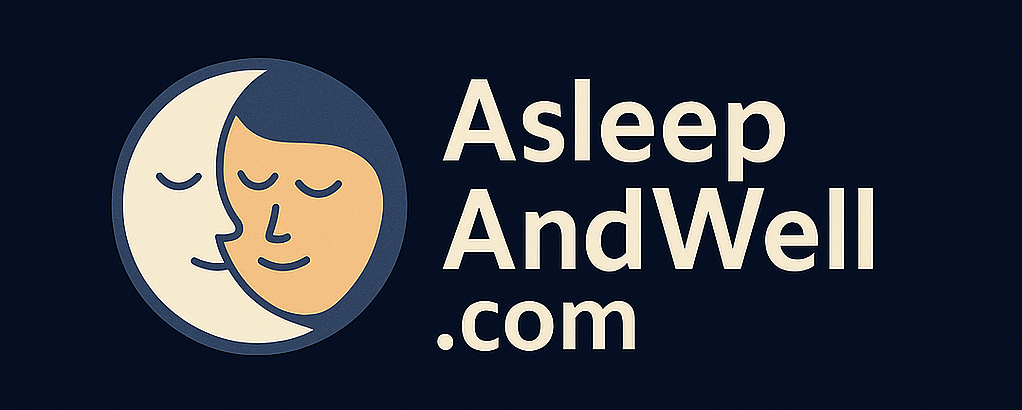😴 Why Do I Wake Up Tired After 8 Hours of Sleep?
You go to bed at a reasonable hour. You clock a full eight hours. But somehow, you still wake up feeling groggy, drained, or like you never slept at all. Sound familiar?
Sound familiar?
This is one of the most common (and frustrating!) sleep issues out there. But the good news? It’s usually not about how long you slept – it’s about how well you slept.
Let’s explore some everyday reasons behind this groggy wake-up call – and what you can do to change it.
😴 Still Tired After “Enough” Sleep?
If you’re consistently waking up feeling unrefreshed, even after a full night in bed, the problem usually isn’t how long you’re sleeping, it’s how well or when you’re sleeping.
Several sneaky culprits could be to blame, from disrupted sleep cycles to hidden habits that sabotage your rest.
🔍 What Might Be Causing It?
Let’s break down some of the most common, non-medical reasons you might feel tired after 8 hours of sleep:
1. 🌀 Poor Sleep Quality
Getting eight hours in bed doesn’t guarantee eight hours of restorative sleep. You may be:
- Waking up frequently without realising
- Spending too little time in deep or REM sleep
- Sleeping in an environment that subtly disrupts your rest (light, temperature, noise)
2. ⏰ Sleep Cycle Interruptions
You might be waking up in the wrong part of a sleep cycle, making you feel groggy even after “enough” time asleep.
Try tracking your natural rhythm and experimenting with sleep/wake timings.
You may feel better with 7.5 hours than 9, depending on your sleep cycle.
3. 🕒 Misaligned Body Clock (Circadian Rhythm)
Are you sleeping at the right time for your body?
- Staying up late and waking late (or vice versa) may clash with your natural circadian rhythm
- Social jet lag (shifting your sleep/wake time on weekends) can throw your system out of sync
See:
👉 Tired All Day, Then Wide Awake at Night
4. 📱 Evening Habits Sabotaging Sleep
Blue light, scrolling, late-night stress, and even certain foods can reduce the depth of your sleep, even if the clock shows 8 hours.
See:
👉 How Evening Blue Light Disrupts Sleep
5. 🧠 Mental Load or Morning Anxiety
You may be sleeping lightly due to underlying stress or anxious thoughts, causing more light sleep and fragmented rest.
See:
👉 Why Can’t I Turn My Brain Off at Night?
👉 Why Do I Wake Up Feeling Anxious?
6. 🍽 Caffeine and Food Timing
What you consume – and when – can quietly undermine your sleep quality, even if you get the hours in.
Caffeine stays in your system for several hours, and while you might fall asleep, it can reduce your deep sleep and leave you feeling groggy the next day. Aim to cut off caffeine at least 6–8 hours before bed, although keep in mind that everyone is affected by caffeine differently.
Late or heavy meals can also disrupt your rest by raising body temperature and triggering digestion right when your body should be winding down. Going to bed too full or too hungry can both interfere with restful sleep. Try to eat dinner 2–3 hours before bed, and opt for lighter, balanced foods.
See:
👉 🍷 How Food, Caffeine & Alcohol Affect Your Sleep
✅ Gentle Ways to Feel More Rested
If you’re waking up tired regularly, try a few of these real-world resets:
- Track your sleep with a simple app or journal for a week
- Shift your bedtime earlier by 30–60 minutes
- Try a 90-minute wind-down with screens off and soft lighting
- Experiment with wake times to find your natural rhythm
- Review your sleep space – is it too warm, too bright, or noisy?
See:
👉 The Perfect Sleep Routine: What To Do 90 Minutes Before Bed
🛠 Tools That Might Help
- Sleep mask or blackout curtains
- White noise machine or earplugs
- Smart alarm app to wake you in lighter sleep
- Blue light blocking glasses for evening use
⚠️ A Note on Medical Causes
While many reasons for waking up tired are lifestyle-related, sometimes persistent fatigue – even after what seems like “enough” sleep – can point to an underlying health issue. If you’ve made meaningful changes to your sleep routine and still feel constantly exhausted, it’s worth speaking to a healthcare professional.
Some conditions that may impact sleep quality include:
- Sleep apnoea (pauses in breathing during sleep)
- Iron deficiency or low B12
- Thyroid issues
- Depression or chronic anxiety
- Restless leg syndrome
- Certain medications or underlying illnesses
You don’t (and shouldn’t) need to self-diagnose – just know that you’re not imagining things, and you’re not alone. A short conversation with a healthcare professional could help identify the cause and lead to better sleep.
📝 Final Thoughts
Waking up tired after 8 hours is frustrating, but it’s also surprisingly common. The good news? With a few small changes, you can start waking up more refreshed and in tune with your natural rhythm.
